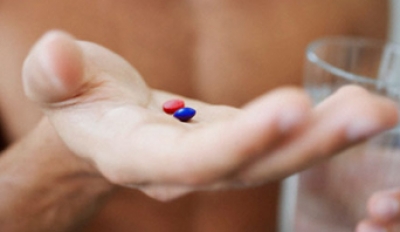If you have inflammation, there is no quicker or more efficient way to control it than with corticosteroids. But while these powerful anti-inflammatory drugs can be lifesavers, they can also cause some pretty nasty side effects. To reduce the risk of corticosteroids’ side effects, doctors recommend taking the lowest dose needed for the shortest period of time that gets inflammation under control.
If you need to take corticosteroids for more than a week or two, never stop taking them abruptly – your doctor will give you instructions for tapering your dose while watching for signs that inflammation isn’t sufficiently controlled, says Donald R. Miller, professor and chair of the department of pharmacy practice at North Dakota State University, Fargo.
Miller also recommends the following to minimize the risk (or appearance) of some of corticosteroids’ most troublesome side effects::
Weight gain:
Steroids affect your metabolism and the way your body stores fat. While taking corticosteroids you may feel famished, prompting you to eat excessively and gain weight. You may notice fat accumulation around your abdomen, even if you’ve never had it there before. You may also retain fluids and feel bloated.
Solution: Watch your calories and exercise regularly to try to prevent excessive weight gain. Particularly watch your salt intake, which can increase fluid build-up. And take heart: If you do gain weight, it won’t likely linger forever. Most people start to lose it relatively easily once they discontinue steroids.
Susceptibility to infection:
While corticosteroids help suppress the body’s destructive immune response to itself, they can also suppress the response to infection, allowing even minor infections to become serious.
Solution:Be sure to get an annual flu shot and ask your doctor about the pneumonia vaccine. Do not get any live vaccines – including the measles, mumps, rubella and chickenpox vaccines – which may actually cause you to become sick with the illness you are trying to prevent, says Miller. Practice prevention by washing your hands frequently and avoiding crowds and contact with people you know are sick. If you notice any signs of infection – a dry cough, fever or painful urination, for example – call your doctor immediately.
Thin skin:
Corticosteroids inhibit the production of collagen, a chief component of skin, resulting in thinning and weakening of the skin evidenced by stretch marks, easy bruising and the appearance of capillaries beneath the skin.
Solution: While there is little, if anything, you can do to stop skin thinning, there are a number of products – including collagen hydrolysate or vitamin E creams – may reduce the appearance of stretch marks. Cosmetic products can be useful for camouflaging tiny blood vessels or bruising on the face.
Cataracts and glaucoma:
Using corticosteroids can worsen or increase your risk of two eye problems: cataracts, the clouding of the eye’s lens, and glaucoma, the build up of pressure in the eye.
Solution: To reduce your risk of cataracts, avoid other causes such as direct sunlight and cigarette smoking. While cataracts cannot be reversed, regular eye exams will alert your doctor to a possible problem, which may necessitate changing your medication or lowering the dose. Regular eye exams are also important to check for glaucoma, which can be treated and often reversed if detected early.
Bone loss:
One of the most common and potentially debilitating side effects of corticosteroids is thinning of the bones, which can lead to painful and debilitating fractures.
Solution: While taking corticosteroids it’s more important than ever to get enough calcium (1500 mg daily) and vitamin D (800 mg daily). It’s also important to get regular weight-bearing exercise, such as walking or dancing. If you are going to be on corticosteroids more than three months, Miller recommends speaking to your doctor about a bone density scan and the possibility of taking an osteoporosis medication called a bisphosphonate.
Source: Arthritis Today







